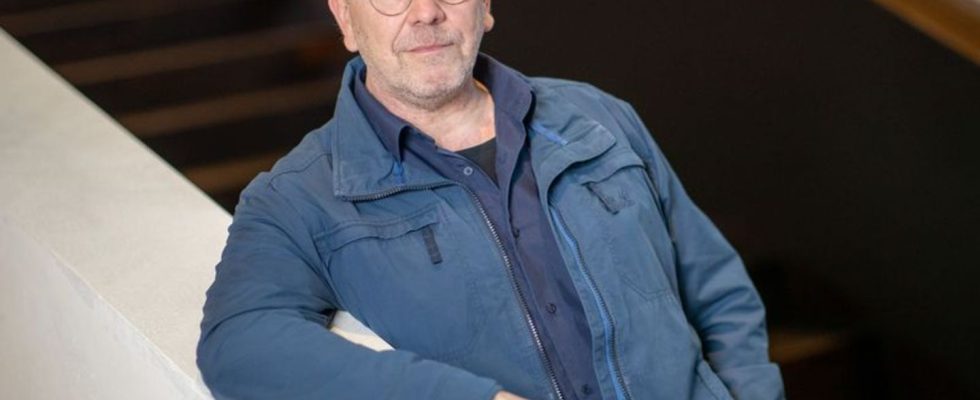“Suddenly and unexpected”
Volksbühne director René Pollesch dies
René Pollesch in October 2020. Photo
© Daniel Karmann/dpa
The topics that Pollesch took up ranged from the supposedly banal to the supposedly great. Three years ago he took over as director of the Berliner Volksbühne. Now he has died at just 61 years old.
He knew the Berliner Volksbühne like no one else when he took over the management of the house: he is now artistic director René Pollesch died at the age of 61. His death on Monday was completely sudden and unexpected, the theater announced in the evening. Volksbühne spokeswoman Lena Fuchs initially did not provide any information about the exact circumstances of death. “We are all shocked,” she told dpa. Pollesch was one of the great playwrights and directors of the German theater scene.
His plays often had neither straightforward plots nor classical characters. Pollesch once told the weekly newspaper “Die Zeit” that this “oil trail of a coherent figure that one then sleighs on in the representational theater” bores most actors. “With us, no one has to give a reasonably logical and coherent emotional presentation for an hour and a half. You can hardly do that in your life.”
His theater texts had a lightness and a complexity at the same time that were sometimes difficult to bridge together. When Pollesch then played an old song again – Kate Bush’s “Running Up That Hill” or “Drive” by The Cars, for example – the audience was sometimes still unable to understand what they had just heard.
200 pieces – including in Vienna, Berlin and Munich
The playwright and director was born in Friedberg, Hesse, in 1962. He studied applied theater studies at the University of Giessen, and his teachers included George Tabori and Heiner Müller. Pollesch worked on many stages, staged his own plays in an experimental way and even turned a drive-in cinema into a theater. He staged his own plays at the Burgtheater Vienna, the Deutsches Theater Berlin and the Munich Kammerspiele, among others. He wrote over 200 pieces, mostly short works.
Pollesch has received several awards for his work. Among other things, he received the Mühlheim Dramatist Prize in 2001 and 2006. He was most recently awarded the Arthur Schnitzler Prize in Vienna in 2019.
The topics that Pollesch took up ranged from the supposedly banal to the supposedly great. In “(Life on earth can be sweet) Donna” at the Deutsches Theater, for example, he had the characters think about the revolving stage and epic theater, about shopping centers and friendships, about car accidents and capitalism. And on a legendary evening he played at the Friedrichstadt-Palast with actor Fabian Hinrichs. The piece was called “Belief in the Possibility of Complete Renewal of the World.” It was one of the evenings that not only the German feature pages looked at.
A doer who had known the Volksbühne for a long time
The fact that Pollesch became artistic director of the Volksbühne was good news from the perspective of many long-time supporters of the theater. After a quarter of a century of Frank Castorf, there was a lot of protest against the Belgian Chris Dercon as his successor, who soon gave up his post. After an interim solution with Klaus Dörr, Pollesch took over. A man who had known the theater for a long time moved into Rosa-Luxemburg-Platz with the son of a caretaker: Pollesch had already been at the Volksbühne under Castorf many years before. The theater is considered an idiosyncratic house with strong characters.
Pollesch worked with actors such as Martin Wuttke, Fabian Hinrichs, Kathi Angerer and Sophie Rois. He opened his first season as director of the theater in September 2021 with the premiere of “The Rise and Fall of a Curtain and His Life in Between”.
When he announced his new position back in 2019, he sat on stage wearing his usual clothes: jeans, jacket, glasses. He took out a piece of paper and told us how he imagined his directorship would be. There is no need to worry, said Pollesch, he is never alone. As a director and author, he is never alone.
His paper also stated what could be continued at the Volksbühne, namely “not doing everything right”: “To make it very clear that you will not be managing a theater, that you will not be celebrating theater opening parties like everywhere else, except for the staff, and will not be publishing season books , doesn’t behave properly and doesn’t do everything that’s expected.”

